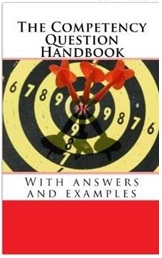 ReConnect Africa is a unique website and online magazine for the African professional in the Diaspora. Packed with
essential information about careers, business and jobs, ReConnect Africa keeps you connected to the best of Africa.
ReConnect Africa is a unique website and online magazine for the African professional in the Diaspora. Packed with
essential information about careers, business and jobs, ReConnect Africa keeps you connected to the best of Africa.



 In the cut-throat world of landing a good job, you will need to be fully armed with powerful and convincing accounts of when you have used the skills demanded in the job advert, says careers expert Mike Good
In the cut-throat world of landing a good job, you will need to be fully armed with powerful and convincing accounts of when you have used the skills demanded in the job advert, says careers expert Mike Good
Another week and another round of news about hundreds of workers losing their jobs and joining the job pool. To succeed in the fiercely competitive job hunting world you need to know that, increasingly, employers are using the competency-based (also known as ‘behavioural’) approach in their interviews. An employer is now more interested in hearing how you have demonstrated the skills he needs, rather than your qualifications or background.
Explaining the ‘How’
In order to succeed in these interviews, you need to clearly structure your answers so that they fully explain how you have utilised your skills in the past. Each question will focus on a particular competence. The interviewer could ask “Tell me about a time when you have shown initiative”, or “Give me an example of when you have had to work to deadlines or achieve targets” or “When have you demonstrated adaptability to change?”
To best explain your competence in an area, use the simple S.A.R method to tell a short story lasting two minutes or so.
Firstly, you describe what the SITUATION or problem was that needed your attention. It is putting things in context. Next, you will describe what ACTION you took to remedy the problem. This is where you go into the specifics and spell out exactly what you did and it gives you the opportunity to sell yourself to the employer. This is where you demonstrate how you have the competency which is being sought in the job advert. You tell how you have already successfully dealt with this situation in the past. You must detail not only what action you took but what skills you employed. Wherever possible, try to choose an example which is similar to the job you are now applying for. Wherever possible, try to demonstrate that you have already done exactly what the interviewer is asking.
Finally, you summarise the RESULT, detailing the benefits to your past employer and team and if possible, with hard figures if you improved productivity or saved money. If you can't quantify the experience with figures, describe what you learned from it. Also, any praise/awards you received.
Approximately 10 % of your time should be spent setting the scene, 75% describing the action that you took and 15% describing the result.
Knowing the Interview ‘Rules’
We’ve all heard that job interviews are a game and it’s partly true, but you won’t win the game unless you know the rules. There are certain definite Do’s and Don’ts for competency interviews.
 Some of the Do’s are : ensure that you talk about what you did, not what others did; spend most of your time on the ACTION part of your answer; quantify your success with hard figures and stats rather than generalities; finish with a happy ending and a strong impact.
Some of the Do’s are : ensure that you talk about what you did, not what others did; spend most of your time on the ACTION part of your answer; quantify your success with hard figures and stats rather than generalities; finish with a happy ending and a strong impact.
Some of the Don’ts include: don't generalise, e.g. "I'm always polite to customers” - the employer is not interested in what you normally do but what you’ve done; he wants an example. Secondly, don't give a job description, for example, "My job involves” or “I do this."; the employer is not interested in what your job involves, he wants an example of what you’ve done.
Don't theorize, for example, "Well, I would do/I generally/I tend to..." The employer is not interested in what you would do; he wants an example of what you have done in the past which demonstrates that competency. Don't assert, for example, "It is very important to …..(..get along with your colleagues)". The employer is not interested in your assertions; he wants to hear an example of when you have done that which shows that particular ability.
A major problem faced by many people is that they know they have the skills for the job but cannot recall any incidents of when they have used them. You need to evaluate your skills, classify them and record instances of when you have used them. In that way, you will build up a handy library of examples to use for interviews.
In my new book, The Competency Question Handbook, I go into great detail about the whole process. I list the competencies and give many examples of questions and answers and even show how you can predict your interview questions by analysing and deconstructing the job advert.
These competencies interviews are here to stay. You can easily master them and use them to your advantage and beat off all competitors, if you know how. God helps those who help themselves. The very best of luck to you!
